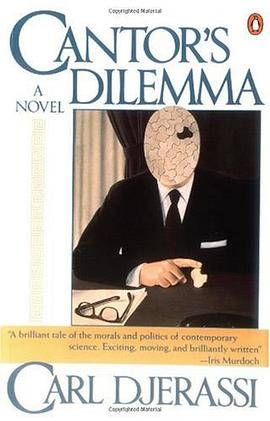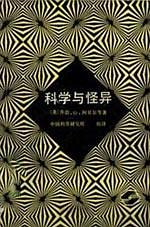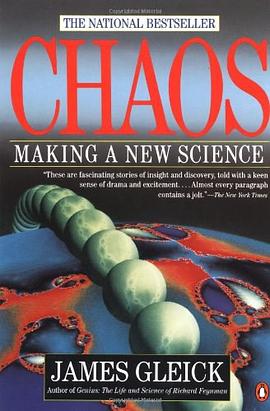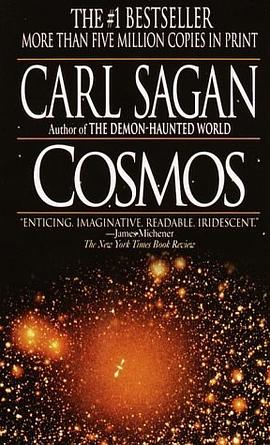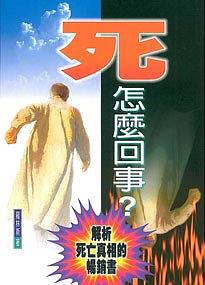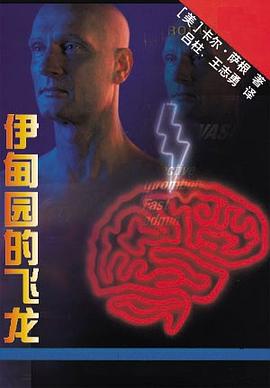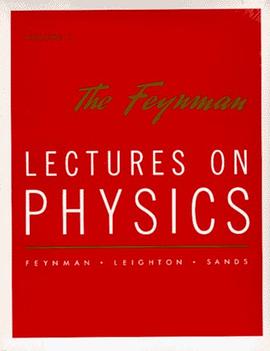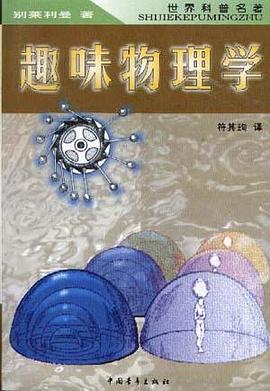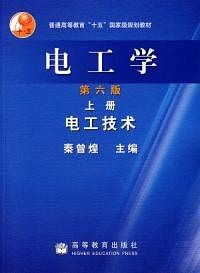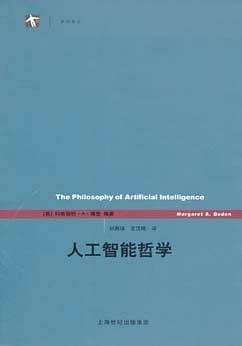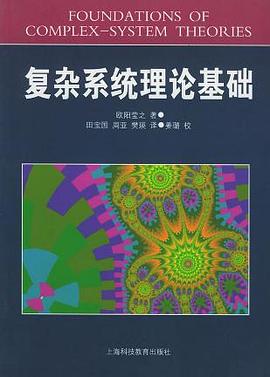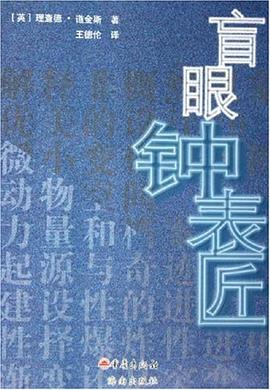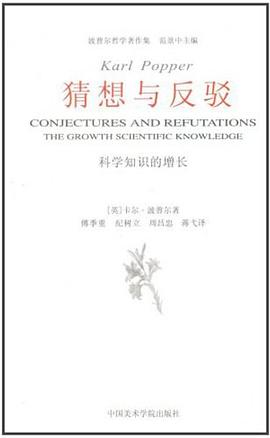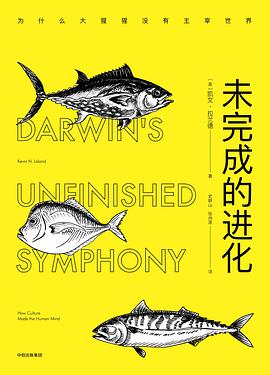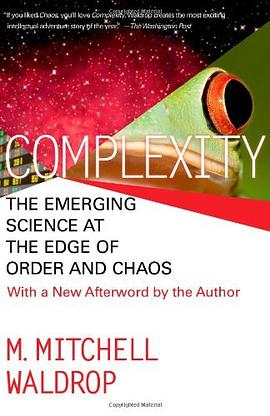

具体描述
In a rented convent in Santa Fe, a revolution has been brewing. The activists are not anarchists, but rather Nobel Laureates in physics and economics such as Murray Gell-Mann and Kenneth Arrow, and pony-tailed graduate students, mathematicians, and computer scientists down from Los Alamos. They've formed an iconoclastic think tank called the Santa Fe Institute, and their radical idea is to create a new science called complexity. These mavericks from academe share a deep impatience with the kind of linear, reductionist thinking that has dominated science since the time of Newton. Instead, they are gathering novel ideas about interconnectedness, coevolution, chaos, structure, and order - and they're forging them into an entirely new, unified way of thinking about nature, human social behavior, life, and the universe itself. They want to know how a primordial soup of simple molecules managed to turn itself into the first living cell - and what the origin of life some four billion years ago can tell us about the process of technological innovation today. They want to know why ancient ecosystems often remained stable for millions of years, only to vanish in a geological instant - and what such events have to do with the sudden collapse of Soviet communism in the late 1980s. They want to know why the economy can behave in unpredictable ways that economists can't explain - and how the random process of Darwinian natural selection managed to produce such wonderfully intricate structures as the eye and the kidney. Above all, they want to know how the universe manages to bring forth complex structures such as galaxies, stars, planets, bacteria, plants, animals, and brains. There are commonthreads in all of these queries, and these Santa Fe scientists seek to understand them. Complexity is their story: the messy, funny, human story of how science really happens. Here is the tale of Brian Arthur, the Belfast-born economist who stubbornly pushed his theories of economic ch
作者简介
目录信息
读后感
好书,好书,拿起他就再也难以放下。真实的生命原来是这样的。说出了我想说却无法说出的话,我更加清楚自己未来的生活应该如何。
评分记得这个本书还是在大学的时候看的,当时在图书馆里发现了这本书看了几页后就再也放不下来了,几乎是一口气看完了,陶醉于本书丰富的知识面,而且读起来又比较轻松。这几天又找来电子版重读,一样可以让人激动和震撼。
评分如果说作家是人类的良心,那么科学家毫无疑义的担当起了人类的智力。他们用他们非凡美妙的想象力和无比坚韧的毅力带领着我们,领略世界,了解自己。 首先,我相信这本书对大多数人来说会是一个很丰富的阅读过程,其间涉及的从生物化学宇宙起源的物理探索到电子人工智能跨领域...
评分大学的时候,放弃其他的专业,选择化学,其原因是对 化学中那奇妙的反应着迷,想去了解。 普利高津的耗散理论,熵。 这个世界到底是会变成什么样呢? 岁月流逝,当时的激情已然不再,化学也离我远去。 看了复杂这本书,又让我感觉回到当时对这个世界的事务那种追求理解的年代...
评分这本书并非艰涩的物理教课书 这本书是引领你进入宇宙真理的导航 正像书评中说的,掌握了复杂系统的人,将成为是未来的超级力量 有点扯淡是吗? 建议你先去了解一下混沌,自组织,和进化 看完全书,总结下来的复杂系统层次是这样的 1、正反馈和自组织 这是将静态,推向混沌...
用户评价
《Complexity》这个书名,让我想到了人类文明本身的历史进程。我设想这本书或许会从人类社会的角度出发,探讨文明是如何在漫长的历史中,通过无数次的互动、冲突、融合与创新,逐渐发展出我们今天所见的复杂性。它是否会涉及历史学、社会学、经济学等多个学科的知识,来解释社会结构的演变,经济模式的更迭,以及文化传播的规律?我希望它能够以一种宏大的视角,展现人类文明发展的宏伟画卷,并让我们思考,是什么力量驱动着我们不断向前,又是什么因素导致了社会的变迁。这本书有没有可能讨论“路径依赖”的效应,即过去的决策如何深刻地影响了今天的社会格局?它是否会分析不同文明之间的互动,以及这些互动如何催生出新的复杂性和多样性?我期待它能为我提供一种理解人类社会发展的独特视角,并引发我对人类命运的思考。
评分当我看到《Complexity》这个书名时,我的脑海中立刻浮现出一些关于“算法”和“人工智能”的画面。我推测这本书很可能是在探讨,如何设计和理解那些能够处理海量数据、解决复杂问题的智能系统。它是否会深入讲解机器学习的原理,或者深度学习网络的构建?我好奇这本书是否会触及到“可计算性”的边界,以及那些人类尚无法完全解决的计算难题。更进一步,我希望它能探讨人工智能的伦理问题,例如在自动化、决策制定等方面,我们应该如何去规范和引导它们的发展。这本书有没有可能提供一些关于“图灵测试”或者“强人工智能”的深入讨论?它是否能够帮助我理解,我们正在走向一个怎样的未来,以及我们应该如何为这个未来做好准备?我期待它能提供一些关于科技发展趋势的前瞻性洞察。
评分《Complexity》这个名字,让我联想到了宇宙本身的神秘与浩瀚。我设想这本书或许会涉及一些宇宙学或者物理学的概念,例如多重宇宙的可能性,或者量子力学中那些令人匪夷所思的现象。当然,它也可能是一种隐喻,用来描述我们所生存的这个世界,它所包含的无数生命形式、生态系统,以及它们之间微妙而又至关重要的相互作用。我期待着作者能够用一种引人入胜的方式,将那些抽象的科学概念转化为生动的叙述,让我们能够感受到科学的魅力,即使我们并非专业人士。这本书有没有可能探讨“生命”这个概念的复杂性?从最简单的细胞到最复杂的生物体,它们是如何在进化过程中不断演变,并适应环境的?我希望它能够激发我对科学的好奇心,让我更愿意去了解这个世界是如何运作的,以及我们在其中扮演的角色。
评分这本书的书名《Complexity》真的非常吸引人,让人忍不住好奇它究竟会探讨哪些复杂的事物。我一直对事物是如何形成的、又是如何演变的,特别是当这些事物涉及众多相互关联的因素时,总是充满了浓厚的兴趣。这种兴趣并非源于对“复杂”本身的迷恋,而是源于对其中蕴含的规律和模式的探索。我想象着这本书可能会像一张巨大的、多维度的地图,带领读者穿越错综复杂的系统,从微观的粒子互动到宏观的社会结构,揭示那些隐藏在表象之下的联系。我期待着作者能够用清晰而富有洞察力的语言,解释那些看似混乱的现象背后可能存在的简单原理。这本书是否会触及那些关于涌现(emergence)的讨论?例如,个体行为如何聚合形成集体智慧?或者,简单的规则如何催生出高度有序的系统?我希望它不仅仅是罗列一些复杂的例子,更能提供一套分析和理解复杂性的工具或框架。想到这里,我已经迫不及待地想翻开它,看看它是否能满足我对理解这个世界的深层好奇心。
评分从书名《Complexity》本身,我感受到了它潜在的深刻哲学意味。我猜想,这本书可能不会止步于对科学或技术领域复杂性的描述,而是会触及人类思维、社会关系乃至意识本身的复杂性。或许,它会探讨我们如何在一个信息爆炸、变化迅速的时代,去构建意义,去做出决策,去理解他人。这是一种内在的复杂性,与外部世界的系统性复杂性相互映照。我希望这本书能够提供一些反思,让我们审视自己看待和处理问题的方式。它会不会挑战我们习以为常的线性思维模式,引导我们拥抱非线性、多因果的视角?比如,在人际交往中,一个简单的误会是如何演变成一场冲突的?在一个组织中,一个微小的变动如何可能引发连锁反应?我特别好奇,这本书是否会提供一些关于“混沌理论”或者“系统动力学”的通俗易懂的解释,并将其应用到我们日常生活的各个方面。如果它能帮助我更好地理解自己和他人的行为模式,并提供一些应对复杂情况的策略,那将是极大的收获。
评分研究复杂系统的先驱们的故事
评分是一本叙述性的书,不过这种题材不是我的胃口。我喜欢直接去讲宇宙的道理。不过,这本书的有些内容,确实有enlight的作用,比如increaing return, network等。我非常建议,看看。
评分此书的经典性不用赘述,我甚至进而认为人人都该读一下它。虽然在今时今日仍有很多人在日常生活中坚持简单粗暴的二分法,即便是在科研领域也不得不挥动奥卡姆剃刀阉割大量问题,复杂科学一定是未来的大方向,是大部分人重新认识世界和自己的必经之路。本书是带有传记性质的科普读物,通过数位主人公的科研经历叙述复杂科学从无到有的一段历史故事,每一个主人公都是牛人,但他们的最终成功却都不是一帆风顺,有时候几乎会令人叹息其辛苦执着的痛苦之深。在读故事的时候,一个个科学概念扑面而来,作者用文字解释,而没有罗列数学公式,想必是为入门级读者所考虑,而这并不会影响大家的理解,只不过需要从事复杂科学实践工作的人当然必须去参阅其它专业书。总之,这本书能帮助人改变自己过去浅薄的眼界,开启对于科学和社会生活中事物的高级认识,必五星。
评分基本上是复杂性科学的研究机构ST-F的历史 原来很多概念都是相通的,混沌的边缘,生命的涌现与进化,股市的涨落,物质的二级相变。。。有趣啊有趣
评分研究复杂系统的先驱们的故事
相关图书
本站所有内容均为互联网搜索引擎提供的公开搜索信息,本站不存储任何数据与内容,任何内容与数据均与本站无关,如有需要请联系相关搜索引擎包括但不限于百度,google,bing,sogou 等
© 2026 book.quotespace.org All Rights Reserved. 小美书屋 版权所有


